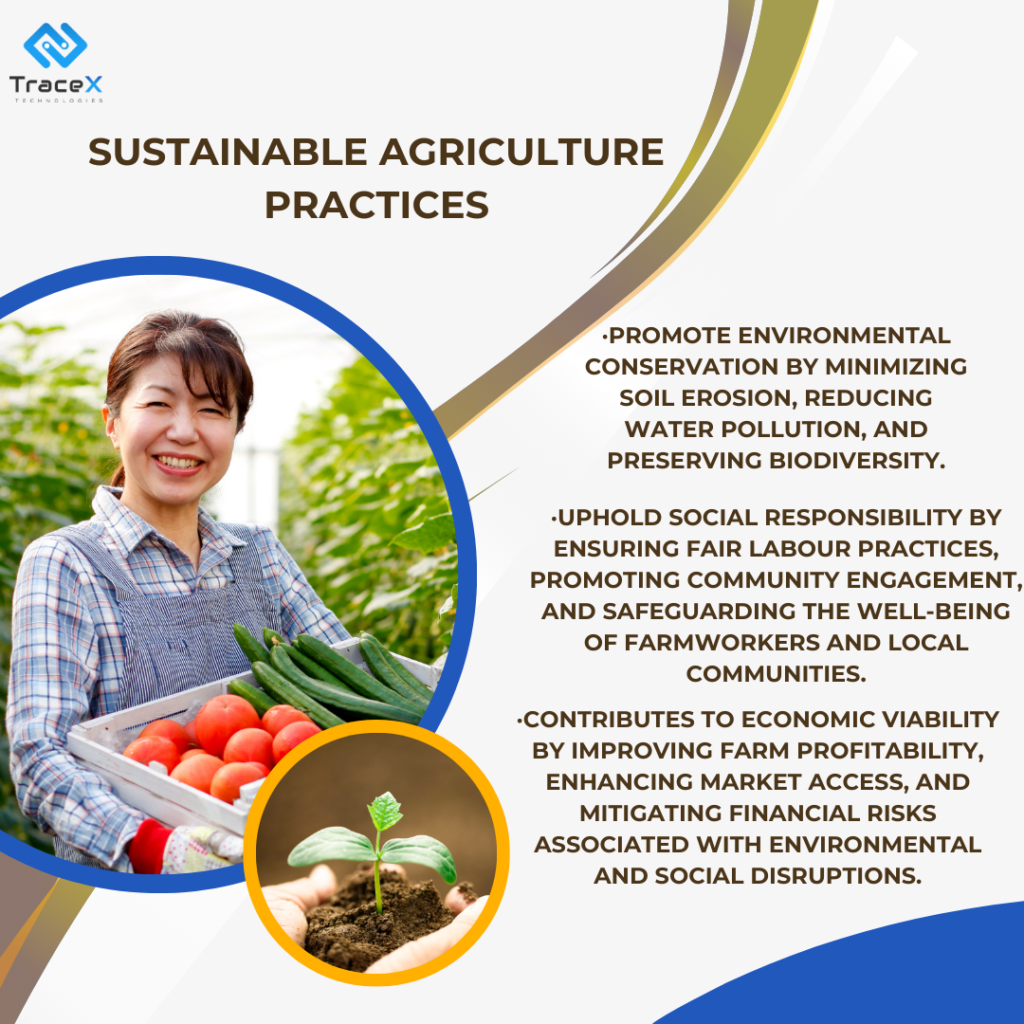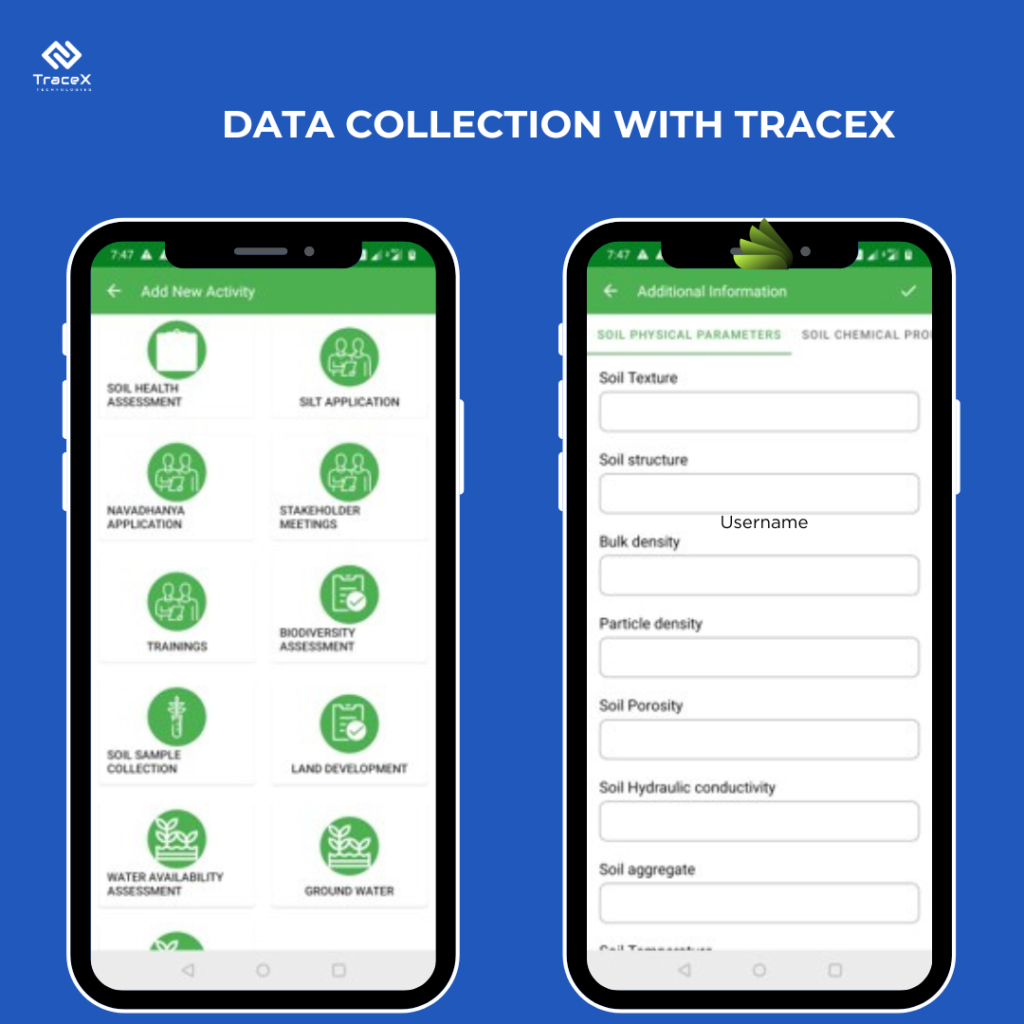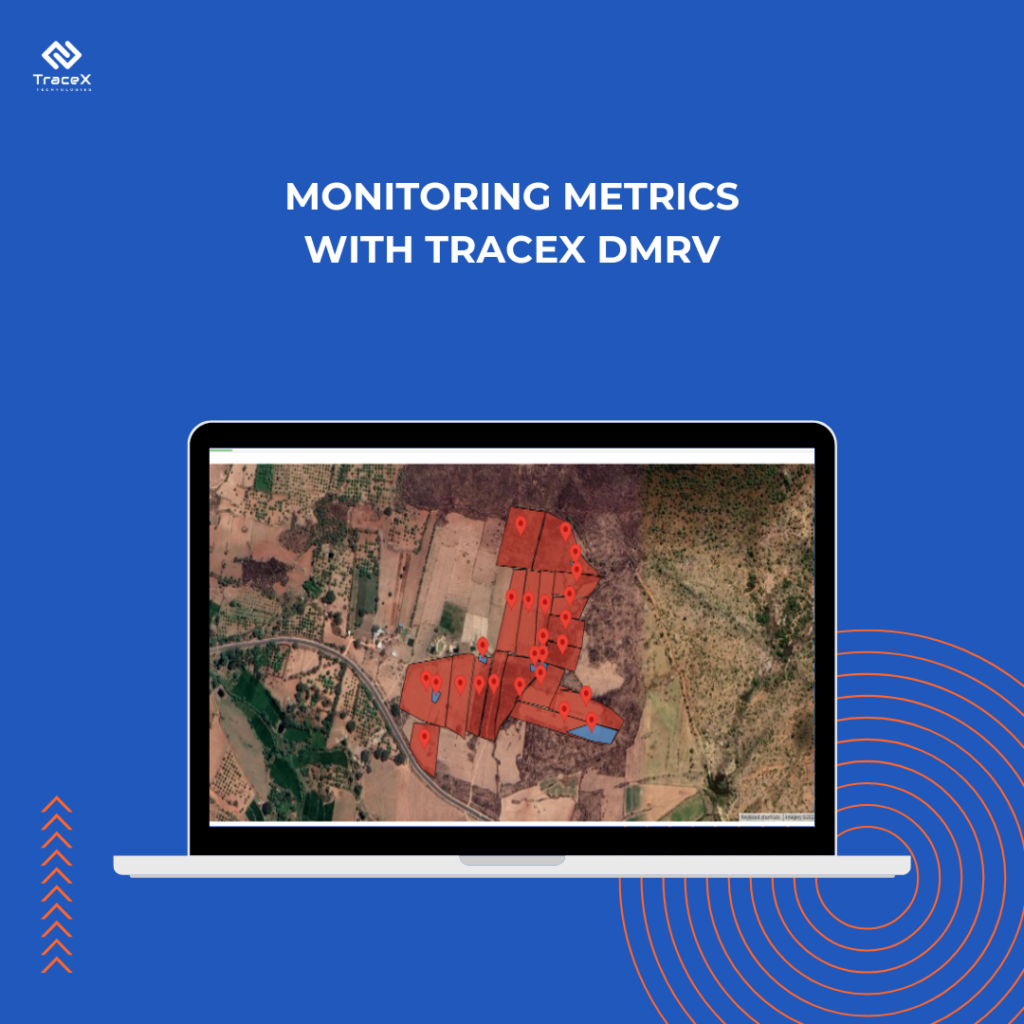Contact: +91 99725 24322 |
Menu
Menu
Quick summary: Explore the pivotal role of TraceX DMRV solutions for sustainability managers. Learn how these innovative tools streamline monitoring, reporting, and verification processes, empowering managers to achieve their sustainability goals with accuracy and transparency.

Sustainability managers play a critical role in ensuring that organizations adopt environmentally responsible practices. As the world grapples with climate change and the urgent need to reduce greenhouse gas (GHG) emissions, digital MRV solutions have become essential tools for sustainability managers.
Sustainability is gaining increasing significance, transcending mere rhetoric to become an integral part of our daily lives. Yet, for sustainability managers, initiating meaningful change can seem daunting. Despite the desire to contribute positively to the world, knowing where to start can be challenging. With numerous options available to enhance your company’s environmental footprint, the question arises: where does one commence?
Sustainability in agriculture refers to the practice of producing food, fiber, and other agricultural products in a manner that is environmentally responsible, socially equitable, and economically viable. It encompasses a holistic approach that seeks to balance the needs of present and future generations while minimizing negative impacts on natural resources and ecosystems.

Sustainability initiatives span various areas, from supply chains to operations. Managers must prioritize efforts to achieve meaningful impact. Balancing short-term goals with long-term sustainability can be daunting.
Sustainability transformations require robust strategies and execution plans. Companies often lack a clear roadmap for achieving ambitious targets. Collaborating across business units and functions is essential but complex.
Quantifying the effects of sustainability efforts can be challenging. Metrics must go beyond financial returns to include environmental and social aspects. Reliable data collection and reporting are essential for transparency.
Sustainability managers often lack direct authority to drive change Overcoming resistance and fostering collaboration are ongoing challenges.
5. Regulatory Landscape
Sustainability managers often face challenges in adhering to regulations and complying with verification and audits, navigating complex regulatory landscapes while ensuring accurate reporting and maintaining transparency throughout the supply chain.
Technology plays a pivotal role in advancing sustainability goals in agriculture by enabling:
1. Precision Farming: Technologies such as GPS, remote sensing and precision agriculture tools allow farmers to optimize resource use, minimize inputs, and maximize yields while reducing environmental impact.
2. Data-driven Decision-making: Advanced data analytics, IoT sensors, and farm management software provide valuable insights into crop performance, soil health, weather patterns, and market trends, empowering farmers to make informed decisions that optimize productivity and sustainability.
3. Supply Chain Transparency: Blockchain technology, traceability systems, and digital platforms enhance supply chain transparency, enabling consumers to trace the origins of agricultural products, verify sustainability claims, and support ethically produced goods.
TraceX Digital Monitoring, Reporting, and Verification (DMRV) solutions are innovative digital tools designed to enhance transparency, traceability, and sustainability in agricultural supply chains. These solutions leverage cutting-edge technologies such as blockchain, IoT, and data analytics to monitor, report, and verify key sustainability metrics throughout the agricultural value chain.
Learn how DMRV solutions streamlines monitoring, reporting, and verification, ensuring accuracy and transparency every step of the way.
Discover why TraceX DMRV is the ultimate choice for carbon projects!
Meet Emily, a dedicated sustainability manager at a global corporation committed to environmental stewardship. Emily’s role is crucial in guiding her organization towards its sustainability goals, but she faces a daunting challenge: ensuring data accuracy in sustainability reporting.
As Emily delves into the task of compiling the company’s sustainability report, she encounters a myriad of obstacles. Inconsistencies plague the data collection process, with various departments using different methods to gather information. Some rely on manual spreadsheets, while others employ disparate software systems, leading to discrepancies and inefficiencies. Adding to Emily’s frustration is the lack of standardized reporting frameworks. Without clear guidelines or industry standards to follow, she struggles to harmonize the diverse data streams into a coherent narrative. This lack of consistency not only complicates the reporting process but also casts doubt on the reliability of the final report.
Moreover, Emily grapples with issues related to data quality and integrity. Incomplete datasets, errors in data entry, and outdated information further muddy the waters, making it challenging to paint an accurate picture of the company’s sustainability performance. Emily recognizes the gravity of the situation. Inaccurate or misleading sustainability reports not only erode stakeholder trust but also jeopardize the company’s reputation and credibility. She knows that without robust systems in place to address these challenges, her efforts to drive meaningful change may fall short.
Determined to overcome these obstacles, Emily sets out to find a solution. She understands that success hinges on implementing a comprehensive data management system capable of addressing the complexities of sustainability reporting. With the right tools and technologies at her disposal, Emily is confident she can ensure data accuracy and integrity, paving the way for her organization to make informed decisions and drive positive environmental impact.
TraceX DMRV (Digital Monitoring, Reporting, and Verification) solutions are at the forefront of leveraging advanced technology to ensure accurate data collection and transparency across the entire supply chain. By harnessing innovative tools such as blockchain and IoT (Internet of Things), TraceX empowers organizations to track and trace critical information with unprecedented precision and reliability.
TraceX DMRV solutions leverage cutting-edge technologies like blockchain and IoT to facilitate accurate data collection throughout the supply chain. Blockchain technology, known for its immutable and decentralized nature, ensures that data recorded on the platform remains tamper-proof and transparent. IoT devices, such as sensors and smart meters, enable real-time monitoring of key metrics like temperature, humidity, and location, providing granular insights into the status of products and processes.
At every stage of the supply chain, from farm to fork, TraceX facilitates seamless data collection through user friendly mobile apps. This involves capturing of baseline data on various parameters like soil health, irrigation practices, land management practices like tillage, pest and disease management, socio-economic data, animal health and other sustainability practices.

TraceX solutions prioritize transparency by offering features such as immutable records and shared access to data. Through blockchain technology, every transaction or data entry is cryptographically linked and time-stamped, providing a transparent audit trail of activities. Additionally, stakeholders across the supply chain, including farmers, project developers, suppliers, manufacturers, and consumers, can access relevant data in real-time, fostering greater visibility and accountability.
Overall, by leveraging TraceX Digital MRV solutions, Emily was able to overcome the challenges associated with data accuracy in sustainability reporting. She could drive continuous improvement, demonstrate the organization’s commitment to environmental and social responsibility, and ultimately contribute to the achievement of long-term sustainability objectives.
Meet Sarah, a sustainability manager at a multinational corporation dedicated to reducing its environmental footprint. Sarah faces a daunting challenge: accurately tracking and quantifying the company’s carbon emissions and environmental impact. As pressure mounts from stakeholders and regulatory bodies to uphold sustainability commitments, Sarah knows that she needs reliable data to drive meaningful change.
However, Sarah encounters several hurdles in her quest for accurate carbon emissions tracking.
Firstly, the company’s data collection methods are inconsistent and fragmented, making it difficult to gather comprehensive information across various departments and operations. Without a centralized system in place, Sarah struggles to ensure that all relevant data points are captured accurately.
Secondly, Sarah grapples with the lack of standardized reporting frameworks within the organization. Without clear guidelines and protocols for measuring and reporting carbon emissions, there is a risk of inconsistencies and inaccuracies in the data presented in sustainability reports. This poses a significant challenge for Sarah in ensuring transparency and credibility in the company’s sustainability efforts.
Furthermore, Sarah faces issues related to data quality and integrity. With manual data entry and disparate systems, there is a higher likelihood of errors, omissions, and discrepancies in the carbon emissions data collected. Without robust validation processes and data verification mechanisms, Sarah cannot confidently rely on the accuracy of the information provided.
As Sarah navigates these challenges, she recognizes the urgent need for a comprehensive solution that can streamline data collection, provide standardized reporting frameworks, and ensure data quality and integrity. Without such a solution, Sarah fears that the company’s sustainability efforts may fall short of expectations, jeopardizing its reputation and credibility in the eyes of stakeholders.
TraceX DMRV solutions offer comprehensive tools and capabilities for monitoring and analyzing environmental impact metrics. These solutions enable organizations to collect, analyze, and report on key sustainability indicators related to carbon emissions, water usage, socio-economic factors, waste generation, and more.

Overall, Sarah derives significant benefits from TraceX DMRV solutions, empowering her to effectively track carbon emissions and environmental footprints, drive informed decision-making, and enhance the organization’s sustainability performance.
Analysis and reporting are pivotal components of the sustainability management process, allowing organizations to derive actionable insights from the collected data and communicate their environmental performance effectively. TraceX offers comprehensive analytics capabilities to process the vast amounts of data gathered throughout the supply chain and transform it into meaningful insights. TraceX offers customizable reporting functionalities, allowing organizations to create tailored reports and dashboards that meet their specific needs. These reports can range from detailed performance metrics for internal stakeholders to concise summaries for external communications and regulatory compliance.
Traceability plays a crucial role in promoting sustainability and ethical sourcing practices within agricultural supply chains. It ensures transparency and accountability by enabling stakeholders to trace the journey of products from their origin to the end consumer. This transparency is essential for verifying claims related to environmental stewardship, social responsibility, and ethical production methods. By knowing the exact source of raw materials and the conditions under which they were produced, companies can make informed decisions to support sustainable farming practices, protect workers’ rights, and minimize environmental impacts. Additionally, traceability enhances consumer trust and confidence, as individuals can verify the authenticity and integrity of the products they purchase, thereby driving demand for ethically sourced and sustainably produced goods.
TraceX DMRV solutions leverage advanced technologies, such as blockchain, IoT (Internet of Things), and data analytics, to enable end-to-end traceability in agricultural supply chains.
TraceX utilizes blockchain technology to create immutable and transparent records of every transaction and event occurring throughout the supply chain. Each participant, from farmers to retailers, can securely record and access data related to product origins, production methods, certifications, and quality standards. This decentralized ledger ensures data integrity and prevents tampering, thereby enhancing trust and accountability. The platform integrates IoT sensors and devices into various stages of the supply chain to capture real-time data on environmental conditions, such as temperature, humidity, and location. The DMRV solutions support traceability certifications, such as Fair Trade, Organic, and Rainforest Alliance, by providing verifiable evidence of compliance with certification requirements.
Ensuring compliance with regulatory requirements and industry standards is essential for demonstrating a commitment to sustainability and meeting consumer expectations. Regulatory bodies and industry organizations establish guidelines and standards to address environmental, social, and ethical considerations in various sectors, including agriculture and food production. Adhering to these standards not only ensures legal compliance but also fosters trust and credibility among stakeholders.
TraceX DMRV solutions play a pivotal role in helping agricultural enterprises meet sustainability certifications and regulatory obligations.
It provides a centralized platform for managing data related to sustainability certifications, regulations, and industry standards. This includes documentation, audit reports, and compliance records required for certification processes. The platform automates the generation of sustainability reports and compliance documentation, streamlining the reporting process and reducing administrative burden.
The platform integrates with established sustainability standards and certification programs, such as the Verified Carbon Standard (VCS), Fair Trade, Organic, and Rainforest Alliance. By aligning with these standards, TraceX helps organizations track and demonstrate compliance with specific sustainability criteria, such as carbon emissions reductions, biodiversity conservation, and fair labor practices.
It enables real-time monitoring and verification of sustainability metrics, allowing organizations to proactively identify and address compliance issues. The solution facilitates auditing and certification processes by providing auditors and certification bodies with access to verified data and documentation.
In conclusion, TraceX DMRV solutions offer a comprehensive suite of tools tailored to meet the needs of sustainability managers in agricultural operations. By providing reliable data accuracy, transparency, and compliance with sustainability standards, TraceX empowers sustainability managers to effectively monitor, analyze, and improve environmental impact metrics across the supply chain. With TraceX, sustainability managers can confidently navigate the complexities of sustainability reporting, drive positive change within their organizations, and contribute to a more sustainable future for agriculture and beyond.
